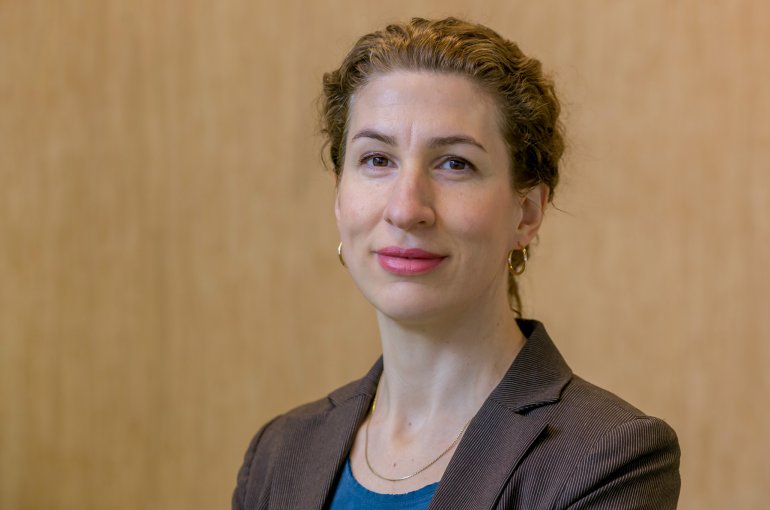Merel Soons appointed Professor of Plant Dispersal Ecology & Conservation
One of few scientists specialised in the ecology and evolution of plant seed dispersal

The Executive Board has appointed Merel Soons to the post of Professor of Plant Dispersal Ecology & Conservation at the Faculty of Science. Soons is one of few scientists in the world specialised in the ecology and evolution of plant seed dispersal. Dispersal is becoming an increasingly important topic, as the ongoing modification of landscapes by humans is resulting in rapid alteration and fragmentation of plant and animal habitat. Soons also focuses on the application of scientific knowledge on plant dispersal and habitat fragmentation in nature conservation and restoration.
“All over the world, habitats of plant and animal species are becoming increasingly modified and fragmented. As a result, plant and animal species are disappearing at alarming rates. These species, and the ecosystems they are part of, provide humans with vital services, such as stable supplies of food and water, clean air and a healthy environment. It is therefore critically important to use these ecosystems in a sustainable way and to preserve and restore their biodiversity. Understanding how plants move between habitat areas and are able to colonize new or restored sites in fragmented landscapes, provides essential information to this purpose”, Soons explains.
Ducks
Plant seeds move via air flows, water flows or animals. Their natural dispersal capacity is increasingly affected, however, by the interruption of dispersal pathways and increasing distances between habitat patches. Soons has studied plant seed dispersal via animal vectors such as water birds. Ducks appear highly effective seed dispersers and transport many more seed species than scientists had previously thought. As ducks and their natural habitats decrease, this will affect many plant species that occur in wetland areas. The publication of her findings in Journal of Ecology was highlighted as ‘Editor’s Choice’ in the journal Science.
Nature conservation and restoration
“I want to understand how plant dispersal works exactly, so that we can answer important questions in nature conservation and restoration”, Soons says. “How can we maintain connections between nature areas? Which locations provide the best opportunities for nature restoration? How can we ensure that plant species can keep up with climate change?”
Wind and water
In her research, Soons uses ecological data and simulation models to calculate how far seeds can travel under given environmental conditions. In collaboration with colleagues from Duke University in the United States, she has studied seed dispersal via wind. She then went on to focus on dispersal via water and water birds, both of which are essential to plant species in wet areas such as the Netherlands. Using her model calculations, she studies the consequences of human interventions in the landscape for the dispersal and survival of plant species.
Interdisciplinary collaboration
Soons’ appointment will reinforce interdisciplinary collaboration in Utrecht University’s Sustainability hubs Future Food and Future Deltas. Her appointment will also strengthen the Academy of Ecosystem Services, a collaborative research and dissemination platform by the Institute of Environmental Biology and the Copernicus Institute.
Merel Soons
Merel Soons earned her MSc in Biology with highest distinction (cum laude) at Utrecht University, where she also conducted her PhD research. As a postdoc she was co-leader of two major EU projects on the impact of environmental changes and climate change on wetland ecosystems. In 2008, she was awarded an NWO MEERVOUD grant and was appointed as Assistant Professor at Utrecht University. Three years later, she was awarded a Vidi grant and an Aspasia grant and was appointed as Associate Professor. Soons applies her ecological expertise to contribute to the nature conservation practice as member of the board of the Netherlands Committee of the International Union for the Conservation of Nature (IUCN-NL). She is also a member of the board of the International Centre for Wetland Ecology.
Read more
- Article of Merel Soons and Erik Kleyheeg in Science as 'Editor's Choice'
Plants actively direct their seeds via wind or water towards suitable sites (publication in Functional Ecology)
Wintering ducks connect isolated wetlands by dispersing plant seeds (publication in Journal of Ecology)

